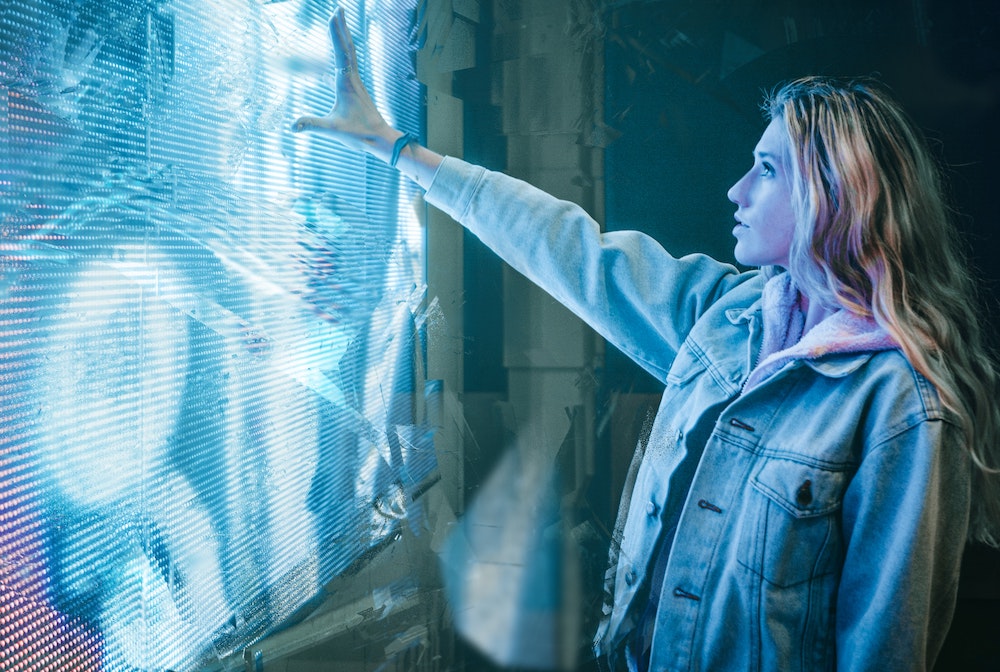This article by Derek Beres was originally published on Psychedelic Spotlight, and appears here with permission.
Oscar Janiger dosed over 950 people with LSD in his Los Angeles home in the nineteen-fifties. The psychiatrist was interested in the drug’s impact on creativity. He meticulously detailed every participant’s experience. At the end of this stunning experiment, he concluded that LSD didn’t make you more creative, but it could influence people with an already creative mind.
As with Stanislov Grof famously calling psychedelics “non-specific amplifiers,” Janiger recognized that LSD would not inspire a non-creative person to suddenly take up painting or poetry. It could, however, offer creative people insights into the nature of their craft. As he wrote,
“The nature of the individual drug experience reflects the basic psychophysiological action of the substance as it interacts with the total life experience that the person brings to it.”
Lesson: if you’re a futuristic thinker, psychedelics might just give you a glimpse of what’s to come. And if you dream of technological breakthroughs, it might help you create one.
Future Visions
Albert Hoffmann was so taken by the effects of LSD on his mind that he spent decades trying to figure it out. His laboratory sent samples around the planet in hopes of finding therapeutic uses for this strange ergot derivative. The discovery of LSD helped kick the entire field of neuroscience into overdrive. Researchers were fascinated by the strange effects that result from a minute amount of this acid.
The thousands of research studies conducted in the nineteen-fifties and early sixties pushed science in new directions. It also, as Janiger noticed, afforded creative thinkers with a powerful new tool in their cognitive arsenal.
In 1973, Timothy Leary predicted that one day the world would be linked by a new “electronic nervous system.” His message might have been all peace and love in the sixties. But as Carter gave way to Reagan, he began preaching a different gospel: cyber was the way forward. And psychedelics, he believed, could foster technology’s progress. Cyberpunks would later consider Leary’s prophetic message to be an inspired vision of the Internet.

Photo by Glenn Carstens-Peters on Unsplash
The LSD-Apple Connection
As hippies were advocating for a “return to the earth,” Silicon Valley was beginning to peer into a digitally-connected future. Steve Jobs famously attributed LSD trips as being among the “two or three most important things” in his life. The computer visionary admits to having ingested LSD-laced sugar cubes 10-15 times between 1972 and 1974. Apple was founded in 1976.
Is the entire computer revolution thanks to psychedelics? Likely not, but Leary believed it accounted for part of it. He called personal computers “the LSD of the 1990s.” He also updated his mantra to “turn on, boot up, jack in.”
Leary was a leading proponent of cyberpunks. He preached that LSD and psilocybin help you transcend the mundane world in the sixties; two decades later, he thought a combination of psychedelics and smart drugs would enable us to transcend space and time.
As with his previous media charades, people within the cyberpunk movement appreciated Leary’s vision of an LSD-fueled tech utopia. Not everyone bought in. But he verified what Janiger discovered 30 years prior: if you’re a creative thinker, psychedelics can help you become more creative. And if your creativity is in app development, your software might just be revolutionary.

Photo by Clint McKoy on Unsplash
Silicon Cosmonauts
While Leary is regarded as the cosmic clown of the hippie era, many of his tech-topia visions are bearing fruit. The word “psychedelic,” coined by psychiatrist Humphry Osmond in 1956, means “mind-manifesting.” Leary knew that the imagination is endless in its potential for manifesting ideas no matter how “far out” they are. Silicon Valley cosmonauts and their penchant for productivity-inducing microdosing have taken up this call to action.
One such technological application is Neuralink, the breakthrough brain-machine interface that promises to connect thoughts with software. Making the mouse irrelevant (by moving your cursor with your mind) is only one futuristic vision in the creative future of software.
Another is Cybin, which has partnered with neuroscience tech makers Kernel. They’ve produced a consumer-grade fMRI scanner that monitors your brain activity while you’re tripping. The partners hope their device will be a household item by the twenty-thirties.
Not all psychedelic technologies are inspiring a revolution, though. Andrew Williams reported on the Awakened Futures conference in 2019, where he put the disorienting hodgepodge of rituals and apps into perspective. Breakthrough technologies for using psilocybin to treat existential dread and video games therapeutically addressing depression and ADHD merged in a mind-manifesting ritual. On a positive note, forward-looking freethinkers envision the union of ancient and future in tech-focused applications that treat every mental health condition imaginable. Apps like PsycheDev and Field Trip are accelerating that, acclimating psychedelic users to enhancing their experiences through tech.

Photo by Joshua Woroniecki on Unsplash
Future Forward
Maybe it was a bit of the reliance of past manifestations, the Leary-in-Birkenstocks throwback, that unsettled Williams. He describes it in illuminating detail.
“Earlier that morning, I’d taken a cardboard cup of ceremonial cacao from a tray held by a guy wearing a lanyard in a dark room with slow-motion rave lights and a DJ named East Forest trilling into a microphone while everyone else sat, lay, or interpretive danced barefoot to a song that was mostly drones, whistles, and the intoned mantra ‘I am a guru.’ Only there on the toilet did I consider that guzzling the murky liquid may have been a bad idea. But cacao and nootropics are to Awakened Futures what plastic water bottles and mints are to a business conference, so, stomach still gurgling, I made my way back to the auditorium.”

Photo by Josh Hild on Unsplash
Tech-topia
Perhaps that’s part of the bargain. A globalized society will pull from disparate pieces when attempting to create a “theory of everything.” Perhaps Ken Wilber was onto something in his frantic attempt to connect the entire world’s history in a single thread. It sounds like an intense LSD trip. The moment when your mind lights up and you think, “aha!” moments later the true realization arrives: “Wait, what was that again?”
A dry definition of technology: “the application of scientific knowledge for practical purposes, especially in industry.”
Psychedelic advocates often eschew capitalism, in theory, if not in fact. There’s nothing dry about the vision of your future self in an ayahuasca ceremony. The tech companies that capture that sentiment on your phone, in your earbuds, and inside of your Oculus transport Janiger’s creative impulse and Leary’s tech-topia to the present. The hard work of the vision is manifesting it in reality—a challenge at least some forward thinkers are willing to accept. Whether or not these technologies benefit us or prove to be expensive glowsticks remains to be seen.
Read the original Article on Psychedelic Spotlight.
Benzinga's Related Links:
© 2025 Benzinga.com. Benzinga does not provide investment advice. All rights reserved.
Trade confidently with insights and alerts from analyst ratings, free reports and breaking news that affects the stocks you care about.
Cannabis is evolving – don’t get left behind!
Curious about what’s next for the industry and how to leverage California’s unique market?
Join top executives, policymakers, and investors at the Benzinga Cannabis Market Spotlight in Anaheim, CA, at the House of Blues on November 12. Dive deep into the latest strategies, investment trends, and brand insights that are shaping the future of cannabis!
Get your tickets now to secure your spot and avoid last-minute price hikes.